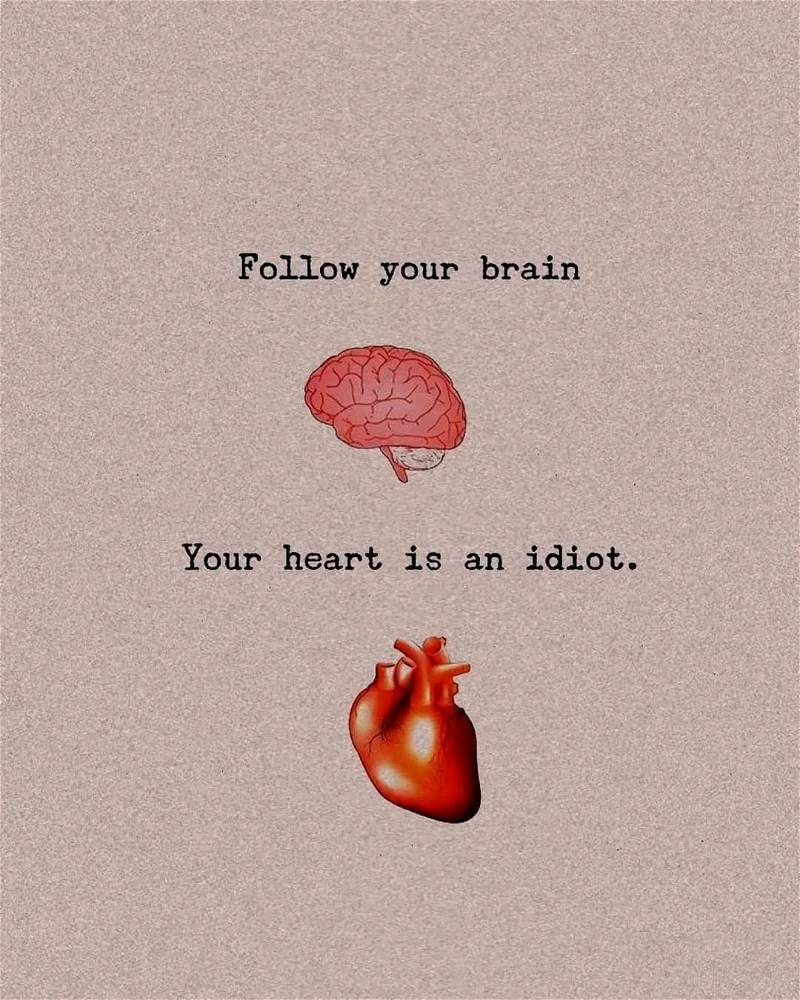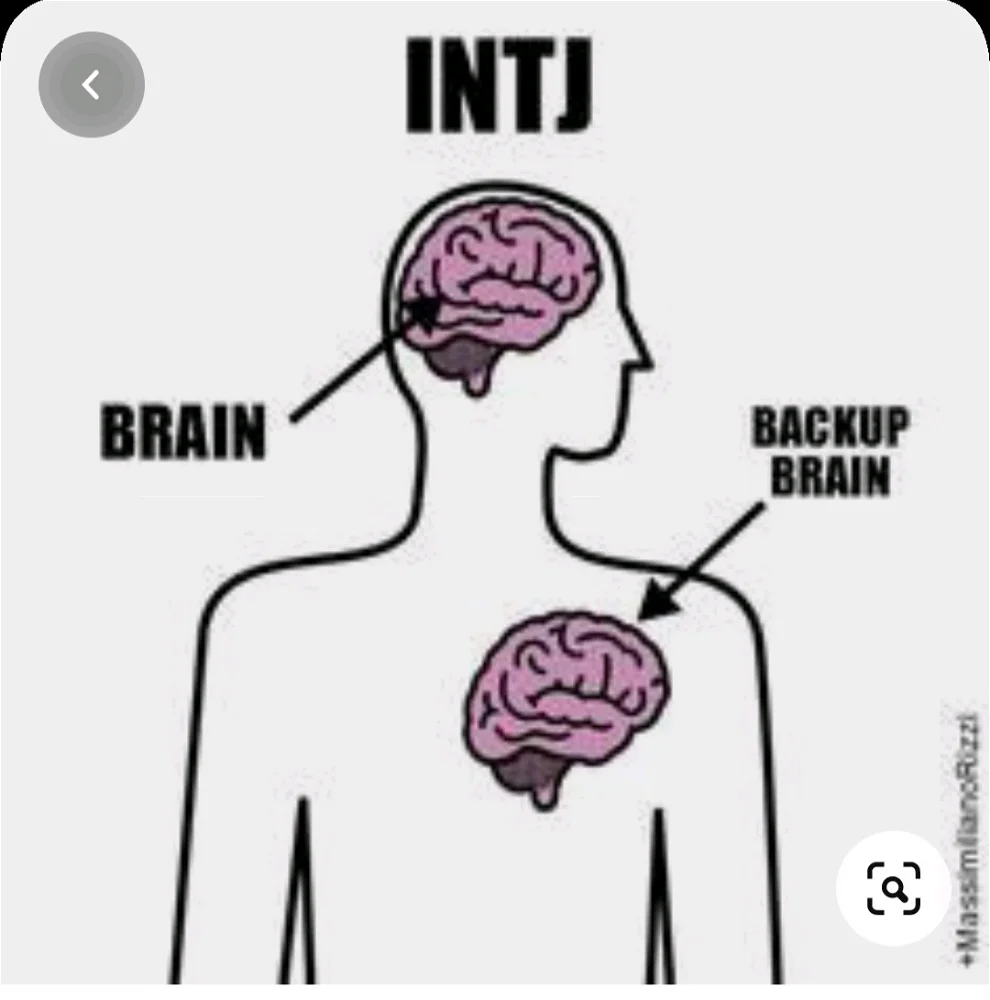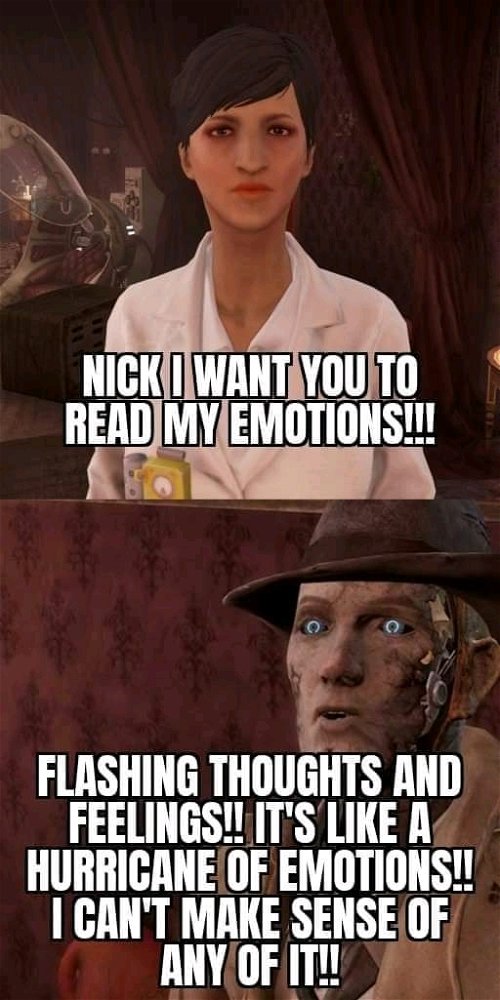We use cookies on our website for a number of purposes, including analytics, performance, and advertising. Learn more.
OK!
Boo
SIGN IN
Toxic Traits of an INTJ: The Dark Schemes of the Mastermind
By Derek Lee
Understanding the INTJ personality type has long been a topic of fascination for both psychologists and laypeople alike. Known as the "Mastermind" or "Strategist," the INTJ is generally revered for their analytical prowess, foresight, and self-reliance. These characteristics make them exceptional problem-solvers and visionaries, but this is just one side of the coin. There are certain traits and tendencies, when left unchecked, that can morph into toxic behaviors, impacting both the INTJ and their social circle negatively.
Here we delve into the less-talked-about facets of the INTJ personality type: the traits that can become toxic and potentially harmful. By dissecting these behavioral patterns and understanding the underlying cognitive functions that may be at play, we can get a fuller picture of the INTJ, for better or worse. The goal isn't to demonize but to shed light on how even the most strategic minds can sometimes go astray, and more importantly, how they can steer back toward a healthier path.
Explore the INTJ Wellness Series
- Wellness for an INTJ
- 10 Things that Excite INTJ
- The Guide to INTJ Anger
- How INTJ Handle Stress
- Surprising Sexuality of INTJ
Architectural Blueprint of the INTJ Mind
Let's dig deeper into the standard attributes that make up an INTJ. The cognitive functions drive these traits, but for the purpose of this discussion, we'll focus on the typical characteristics you'd find in an INTJ personality.
Strategic Thinking
INTJs are problem solvers, often weighing multiple variables to arrive at an effective solution. The upside is a well-executed plan; the downside can be overthinking and procrastination.
Independent
Self-reliance is a hallmark of INTJs. They tend to prefer solo work and are generally resourceful. However, this independence can sometimes morph into aloofness or emotional unavailability.
Intellectual
INTJs value knowledge and rational thought. They have a thirst for understanding the world but can fall into the trap of intellectual snobbery.
Organized
Whether it's their workspace, personal plans, or thoughts, INTJs like to keep things in order. This can sometimes border on obsessive behavior, especially if they're seeking control.
Rational
Decisions are often made through a lens of objectivity and logic, rather than emotion. While this brings clarity, it can also manifest as emotional neglect in relationships.
Toxic Dimensions in INTJ Behavior
When cognitive functions like Introverted Intuition (Ni) and Extroverted Thinking (Te) are skewed, the INTJ can manifest some particularly toxic traits. These aren't just one-off incidents but patterns that can cause genuine harm.
Intellectual snobbery
Relying heavily on Ni and Te, this toxic trait manifests in a dismissive attitude towards ideas that don't align with the INTJ's own viewpoints. Convinced of their intellectual supremacy, they may outright ignore or belittle contributions from others during discussions or team meetings. For example, a toxic INTJ might dismiss another team member's well-thought-out proposal as "trivial," without offering substantive critique. The result is an inhibited environment where free exchange of ideas is stymied.
Emotional neglect
Extraverted Feeling (Fe) is not a strong suit for INTJs, and their Introverted Feeling (Fi) function can manifest as emotional detachment, especially in close relationships. This lack of emotional reciprocity can be toxic. Imagine a scenario where a partner is sharing concerns about an upcoming job interview. A toxic INTJ might respond with a curt, "Your worrying is illogical," before steering the conversation back to their own interests. This leaves the partner feeling unheard and emotionally isolated.
Control freak tendencies
Dominant Te can manifest in a need to control variables to an obsessive degree. INTJs with this trait may find it challenging to delegate or even listen to other viewpoints. In a group project, for instance, a toxic INTJ might allocate roles according to their own master plan, dismiss any alternative suggestions, and unilaterally make changes to the project. This authoritarian approach leads to resentment and conflict within the group.
Disconnection from reality
Ni is often a strength for INTJs, allowing them to envision future possibilities and make long-term plans. However, when this function runs unchecked, it can cause a disconnect from immediate realities. An INTJ consumed by a future project might neglect current responsibilities, like paying rent or attending social commitments. The assumption is that these "minor details" will sort themselves out, which often leads to immediate consequences that the INTJ failed to foresee
Catalysts for Toxicity
Understanding why these traits manifest is crucial for effective intervention and self-improvement. There are usually multiple contributing factors, and recognizing them can help in finding a balanced approach to self-correction.
Cognitive imbalance
An overreliance on certain cognitive functions, like Te for control or Ni for abstract thinking, can lead to distorted behaviors. In a work setting, an INTJ might dismiss alternative methods, thinking their way is the only path to efficiency.
Emotional underdevelopment
INTJs who have not cultivated their Fi adequately can lack emotional depth and empathy, causing them to focus solely on their emotional landscape and neglecting that of others.
Environmental factors
Sometimes external factors like a stressful work environment, tumultuous relationships, or societal pressures can push an INTJ into adopting toxic traits as defense mechanisms.
Masterminding the Reformation of Toxic Traits
Identifying the issue is a crucial first step, but genuine change demands more than self-awareness—it requires action, persistence, and sometimes even external help.
Acknowledge the issue
The first step toward change is admitting there's something to change. For an INTJ, this can be particularly challenging due to their self-reliant nature. However, acknowledgment is key to opening the door for improvement.
Seek outside perspectives
While INTJs are often confident in their internal logic, outside perspectives can offer invaluable insights that might otherwise be missed. This could mean consulting trusted friends or even seeking professional advice.
Emotional literacy
For an INTJ, developing emotional intelligence can be a game-changer. This involves practicing empathy, active listening, and becoming more attuned to both their own emotions and those of others.
Let go
Learning to relinquish control can be liberating. It involves trusting others and allowing room for spontaneity and organic growth, skills that can balance out an INTJ's natural inclination for rigid planning.
Action over ideation
While planning is an INTJ strong suit, execution is where real-world impact happens. This means taking steps to apply their well-laid plans in a practical setting, learning and adjusting along the way.
FAQs
How do I know if I'm a toxic INTJ?
Signs include growing social isolation, frequent conflicts stemming from your insistence on intellectual superiority, and a marked inability to maintain emotionally balanced relationships.
What If I recognize these traits in another INTJ?
Challenge them, intellectually. Present evidence and logic to make them confront their toxic behaviors. If they are true INTJs, the appeal to reason should resonate with them.
Why are INTJs prone to toxicity?
It's not necessarily about being more prone; it's the manner in which we manifest toxicity—systematically and intellectually.
Can a toxic INTJ change?
Yes, with strategic effort and a willingness to self-improve, any INTJ can redirect their path from toxic behaviors to a more balanced existence.
How can I deal with a toxic INTJ in a relationship?
Dialogue is your most potent tool. Use logic and evidence to articulate how their behavior impacts the relationship negatively. If change isn't in sight, reevaluate the relationship's alignment with your long-term goals.
Conclusion: The Redemption Arc of the Toxic Mastermind
Being a toxic INTJ isn't a life sentence; it's more like a crossroads. One path leads to continued toxicity and the inevitable issues it brings, while the other leads to growth, improvement, and more meaningful relationships. The choice, as always for an INTJ, is a logical one to make.
MEET NEW PEOPLE
JOIN NOW
20,000,000+ DOWNLOADS
INTJ People and Characters
Thriving Through Change: A Guide for Sensing Types on Embracing Life's Transitions
Friendship and Emotional Support: Navigating the Waters of Mental Health Together
Unplugging to Reconnect: The Transformative Power of a Social Media Detox on Mental Health and Relationships
Unraveling the Complexities of INTJ Relationships: A Guide to Navigating Love
Universes
Personalities
Personality Database
Meet New People
20,000,000+ DOWNLOADS
JOIN NOW





















































